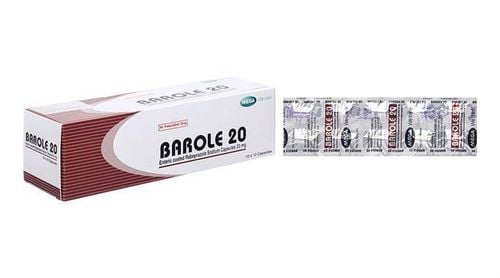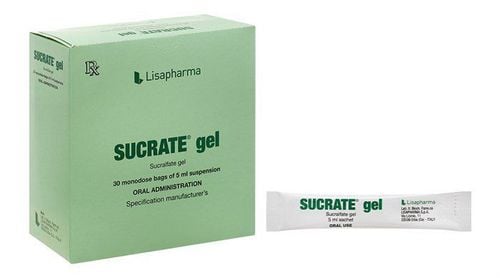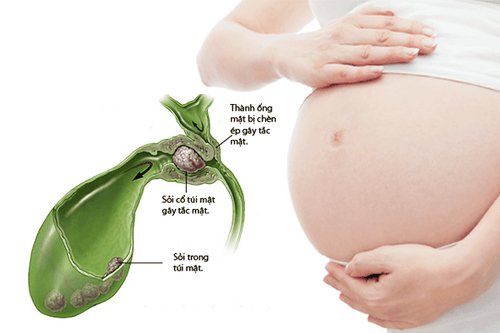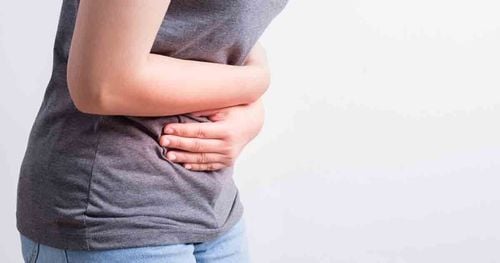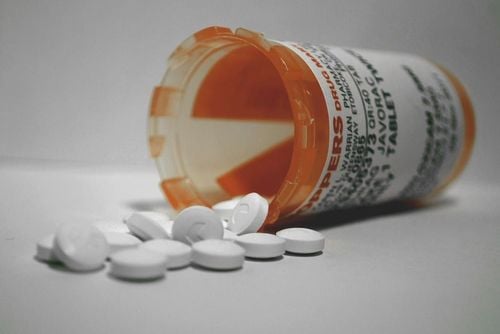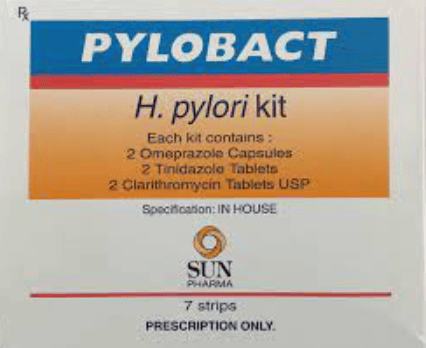The question of what to eat when suffering from acute gastritis is one that concerns many people. Although it is a common digestive disorder, without appropriate treatment and a suitable diet, it can progress into a chronic condition or lead to serious complications. The article below provides detailed answers to this question.
1. Dietary principles for patients with acute gastritis
Acute gastritis is an inflammation of the stomach lining that usually occurs suddenly, presenting with typical symptoms such as severe pain below the navel, belching, nausea, vomiting (the vomit often has a sour smell and sometimes contains blood). Other systemic inflammatory symptoms include high fever (39°C–40°C), dry lips, and coated tongue.
After a confirmed diagnosis, the patient will follow an appropriate treatment regimen. Simultaneously, diet plays a crucial role in the treatment process. The main principle in the diet for acute gastritis patients is to avoid exposing the stomach lining to factors that may worsen the damage. Additionally, patients should consume foods that reduce gastric acid secretion to prevent the condition from becoming more severe.
2. What should you eat when suffering from acute gastritis?
The following foods are recommended during the treatment of acute gastritis:
2.1. Fiber-rich foods
Fiber is an indispensable nutrient in daily meals. For acute gastritis patients, fiber provides benefits such as:
- Neutralizing gastric acid.
- Reducing burning and pain in the upper stomach.
- Soothing the inflamed stomach lining.
- Balancing intestinal fluids.
Vegetables rich in minerals and fiber, such as cabbage, kale, spinach, broccoli, Malabar spinach, and amaranth, help digestion occur more easily and quickly. However, patients should choose vegetables with low acidity and low sugar content to better support their condition.
Additionally, oatmeal-based cereals are also an excellent source of fiber, helping balance excess acid in the stomach.
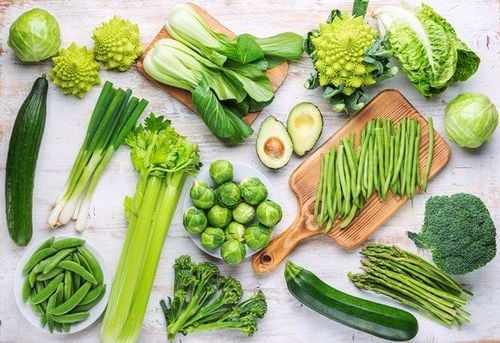
2.2. Protein-rich foods
Protein is one of the essential nutrients in the diet for patients with acute gastritis. So, what should acute gastritis patients eat to supplement protein?
Foods such as eggs, egg whites, and egg-based products are ideal protein sources for any time of the day. However, patients should avoid eating fried eggs or eggs prepared with butter, full-fat milk, and spices.
In addition, patients should eat only skinless chicken, fish, seafood, cold-water fish, and shellfish (not fried). Avoid red meat, processed meats like bacon or sausages, and high-fat meats.
2.3. Foods Containing Probiotics
Foods rich in probiotics help balance the digestive system and effectively eliminate H. pylori from the intestines. Patients should include yogurt, honey, and naturally fermented bread in their meals to enhance overall gut health.
2.4. Foods Containing Pectin
Pectin-rich foods like apples and strawberries help acute gastritis patients strengthen and balance the microbiota in the stomach.
2.5. Foods Containing Antioxidants
Turmeric, broccoli, and tomatoes are rich in antioxidants, which help the gastric mucosa recover quickly and reduce the risk of stomach ulcers.
2.6. Foods Containing Vitamins
Vitamins are an indispensable part of human health. Vitamins A, B, C, and E, found in foods like dragon fruit and sweet potatoes, help the restructuring process of the gastric mucosa. Additionally, patients can supplement vitamins from almonds, dark green vegetables, olive oil, papaya, and more.
2.7 Whole Foods
If wondering, "What should I eat with acute gastritis?" patients should not overlook whole foods such as brown rice, oats, barley, and quinoa. These foods are mild, easy to digest, and rich in fiber, promoting better digestive health.
2.8 Herbal Teas
Some studies suggest cranberry tea inhibits the growth of H. pylori in the stomach. However, patients should avoid it if they are allergic to aspirin or are on blood-thinning medications. Additionally, teas made from frankincense, European licorice, peppermint, ginger, and turmeric effectively support gastritis treatment.
3. What Should Be Avoided for Acute Gastritis?
Aside from knowing what to eat, patients should avoid certain foods to prevent worsening gastritis, such as:
• Pickled and salted foods: Pickles, salted fish sauce, kimchi, etc., are fermented foods that can alter stomach acid and increase the risk of stomach cancer.
• Fried and stir-fry dishes: These foods are hard to digest, high in fats, and stimulate the stomach, requiring more effort to digest.
• Frozen foods: Often contain preservatives that harm the gastric mucosa.
• Carbonated beverages: Contain acids that worsen gastritis and ulcers.
• Spicy, hot, and overly seasoned foods: Stimulate the stomach to secrete more acid, potentially damaging the gastric mucosa.
• Raw foods: Strongly irritate the gastric mucosa, causing acute gastritis and potentially leading to diarrhea.
• Stimulants like cigarettes: Nicotine in cigarettes can constrict blood vessels in the digestive system, reducing blood flow to the stomach lining and making it more susceptible to inflammation. Similarly, alcohol, beer, and coffee negatively affect the stomach.
• Besides, some medications, such as aspirin and NSAIDs, also have side effects that harm the gastric mucosa. Therefore, patients should inform their doctor about the medications they are taking to switch to more suitable options.
4. Notes on Diet and Lifestyle for Acute Gastritis Patients
Some dietary and lifestyle tips for acute gastritis patients include:
• Eating soft, easily digestible foods.
• Ensuring adequate nutrition to strengthen the stomach lining's resistance.
• Eating meals at regular intervals and avoiding prolonged hunger before eating.
• Drinking enough water to support digestive function. It's best to drink water about an hour before breakfast and avoid drinking excessive amounts immediately after a full meal to prevent diluting gastric juices, reducing the risk of stomachache.
• Recommended cooking methods include grinding, mincing, blending, and boiling food thoroughly, prioritizing steaming.
• Chewing slowly and swallowing gradually to aid digestion. Chewing thoroughly increases saliva secretion, which helps neutralize stomach acid and benefits acute gastritis treatment.
• Starting with liquid foods in the early stages and gradually transitioning to thicker meals.
• Avoid overeating, as an expanded stomach secretes more acid, causing pain.
• Limiting stress and mental pressure to reduce nerve stimulation, thereby lowering stomach acid secretion.
• Balancing work and rest to reduce stress and anxiety.
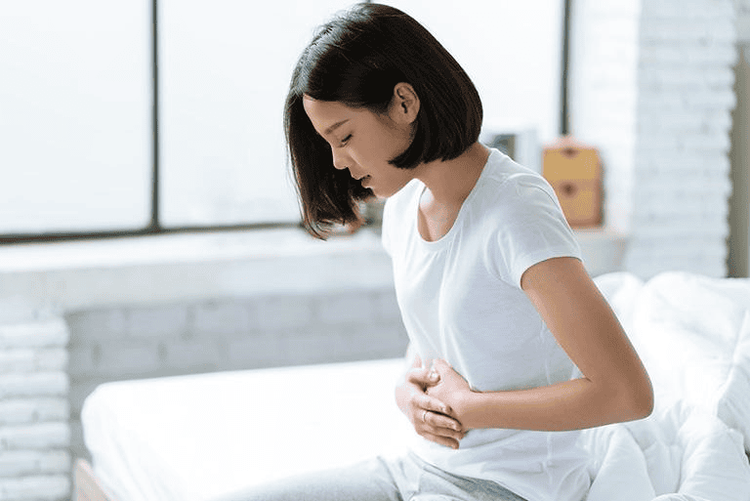
The question "What should I eat with acute gastritis?" is a major concern for many patients. Although acute gastritis is not directly life-threatening, it can develop into more severe conditions if not treated properly and dietary habits are not adjusted.
To arrange an appointment, please call HOTLINE or make your reservation directly HERE. You may also download the MyVinmec app to schedule appointments faster and manage your reservations more conveniently.
To arrange an appointment, please call HOTLINE or make your reservation directly HERE. You may also download the MyVinmec app to schedule appointments faster and manage your reservations more conveniently.
